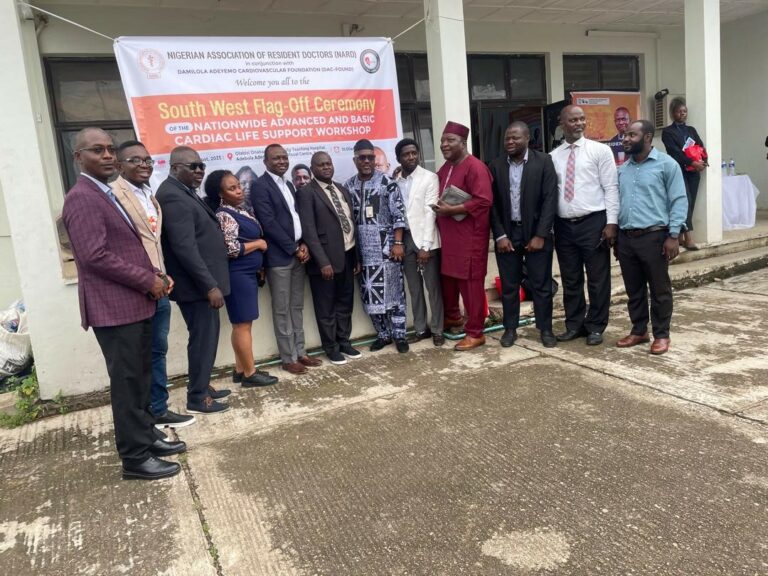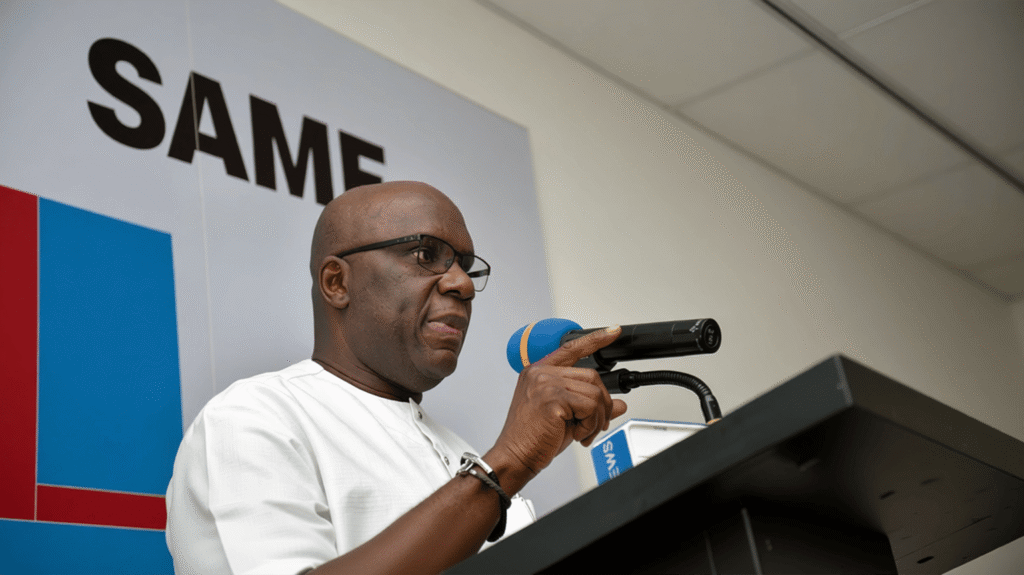Resident Doctors Lament Surge in Cardiac Arrest Deaths, Begin Nationwide Life Support Training

The Nigerian Association of Resident Doctors (NARD) has raised the alarm over the rising cases of deaths from cardiac arrest across the country, blaming the situation on the acute shortage of people with basic life support knowledge.
NARD’s National President, Dr. Tope Osundara, said many lives are lost daily because Nigerians generally lack the skills to administer cardiopulmonary resuscitation (CPR) or basic life support when emergencies occur.
Speaking on Friday at the flag-off of a Nationwide Advanced and Basic Cardiac Life Support workshop for the South-West zone, Osundara described the trend as deeply worrying. The event, held at the Adebola Adegunwa Audio Visual Centre, Olabisi Onabanjo University Teaching Hospital, Sagamu, was organised in partnership with the Damilola Adebola Cardiovascular Foundation.
To tackle the challenge, NARD said it has commenced the training of over 20,000 people nationwide, including healthcare workers, members of the armed forces, paramilitary agencies, and other critical responders.
The aim, according to Osundara, is to build a network of first responders with the knowledge and confidence to save lives during cardiac emergencies.
“Every second counts during cardiac arrest, but sadly, many Nigerians do not know how to carry out CPR or even the basics of life support. This knowledge gap continues to cost us lives that could have been saved,” Osundara said.
He noted that the initiative will be scaled across all zones of the country, with the goal of empowering both medical and non-medical personnel to intervene effectively in emergencies.
Cardiac arrest, which occurs when the heart suddenly stops beating, is a leading cause of sudden death globally. In developed countries, widespread training in CPR and the availability of life-saving devices like Automated External Defibrillators (AEDs) have significantly improved survival rates.
However, in Nigeria, experts warn that the absence of basic emergency response knowledge, coupled with poor access to medical facilities, has worsened fatality rates.
Health advocates have lauded NARD’s initiative, stressing that basic life support knowledge should be included in school curricula and workplace training programmes to build a more resilient society.









